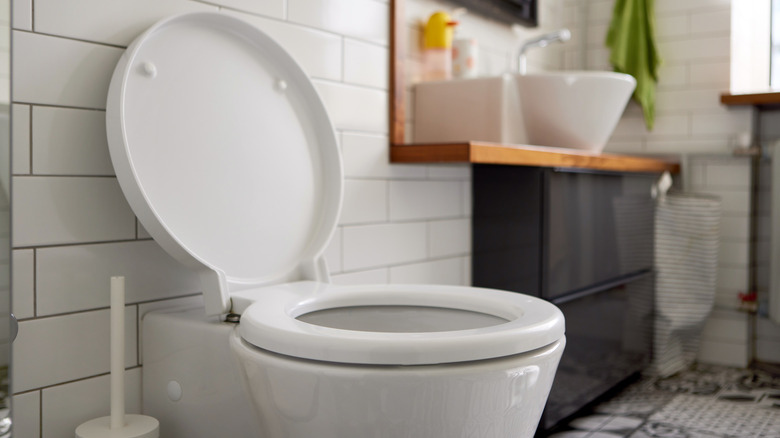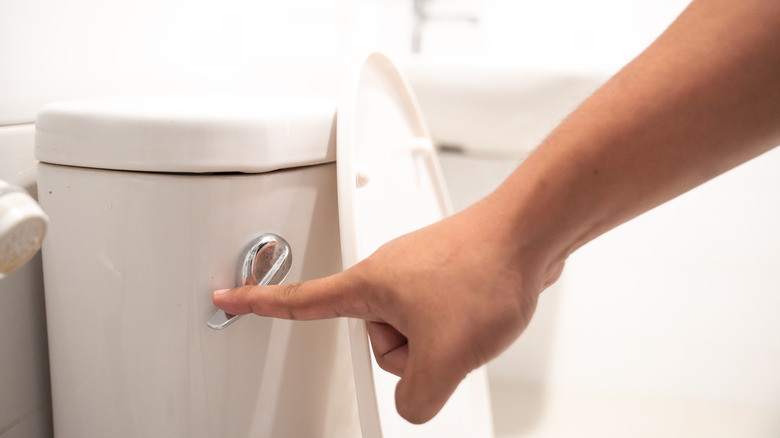Why You Should Always Flush The Toilet When Searching For A Home To Buy
When it comes to looking for a new home, there are, obviously, a ton of things you have on your list of things you want, and probably even more things you need to check before deciding if this place is the right one for you. Does the roof leak? Are there any signs of mold or previous fires? But did you know that you should also be checking out the toilets?
That's right; you need to head right to every bathroom in the home you are looking at and flush the toilet several times for good measure. Allow each one to drain and fill back up the whole way, and check to see if you notice anything odd, such as if the toilet won't flush, takes too long to drain, or doesn't drain fully. Most of us know what a normally working toilet is like and how it should run, so you shouldn't need any extra experience to know something is off.
Spotting an issue early on could save you a lot of time, money, and effort in the long run. How? Well, by noting a problem with the toilet, you could save yourself from needing to call out a plumber later, or you could even negotiate the seller down just a bit. But what should you be on the lookout for?
What should you check when flushing a toilet?
First of all, check the water pressure. If there are signs of incomplete removal, high water levels, a slow or weak flush, or if the toilet takes multiple flushes to fully clear the bowl, then you know that something is wrong with the water pressure. Low water pressure could be caused by anything from clogged pipes to low water levels, most of which will mean a call to a plumber for fixing.
Another thing to check when flushing the toilet is to see if the base is damp. Flush a few times, then use your hands to check the base, and if it's wet, you might have a problem. You will also want to use your hands or feet to check and see whether the floor is soft around the base of the toilet, which could indicate there is a leak.
Finally, if you flush the toilet and immediately get smacked by the smell of sewage, then you could have a much larger issue on your hand. A common cause of sewer gas backing up into the toilet is a lack of a p-trap, which is designed to prevent said gas from backing up into your toilet. Now, while not necessarily hard to replace, a lack of a p-trap, which is considered essential in bathrooms, can signal more underlying issues with the house. Most of these bathroom plumbing mistakes aren't necessarily big in the grand scheme of things, but they are red flags and something to pay attention to when it comes to buying a home.

